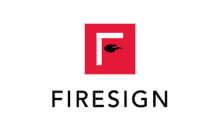A third of the U.S. population listen to podcasts at least once a month and of those approximately 90 million people, 93 percent listen to most of or the entire episode*.
With such a large, engaged audience that is projected to continue growing, podcasting is currently hotly recommended to lawyers – to the point you can’t swing the scales of justice without hitting a legal marketer telling you reasons to launch one.
Lawyers in fact should not add launching a podcast to their marketing plan. Why? The most compelling potential benefits of podcasting can all be achieved through tactics that are more mindful of your time and resources.
Here are six common reasons lawyers are given in favor of starting a podcast and the marketing tactics you can, and should, execute instead:
- It will show your personality and differentiate you from competitors: An individual lawyer’s specific experience and reputation is the 1 hiring factor for corporate clients, proving clients hire lawyers – not law firms.
- Instead invest time maximizing the effectiveness of your professional biography and LinkedIn profile, which are the most valuable marketing tools to convey experience, qualifications, personality and connect with prospective clients.
- You’ll practice improving conversational skills: Forging meaningful connections requires delivering the right messages through the right channels; and podcasting’s one-to-many approach may result in communications that don’t resonate across your target audiences.
- Instead research conferences and speaking opportunities that are important to your target audiences. Crafting creative, targeted communications will develop deeper connections with potential or current clients.
- It will save you time: If you feel lured to podcasting because writing in-depth blogs is burdening your schedule, take heed that all content marketing plans require similar time commitments to planning, creating and distributing.
- Instead test out filling your content calendar with fewer longform articles and more snackable content – content that is brief, easy-to-scan, and quick to consume. Afterall, software company Hubspot found 43 percent of people only skim blog posts.
- It’s less expensive alternative to video: A podcast can seem like a cost-efficient alternative to video, however, it lacks many benefits that video offers.
- Instead consider that people work with those they know, like and trust. Video can better show approachability and build trust with audiences as they’ll see your facial expressions, mannerisms, etc. Additionally, take into account video’s content repurposing potential – it’s likely that you’ll be able to use one video asset three to five times, driving down its cost-per-use.
- It’s convenient for your audience to consume: Podcasts can be listened to while exercising or driving without devoting full attention like text and video content. However, this also means you aren’t getting someone’s full attention.
- Instead engage your audience, without asking for a large a time commitment, through well produced text and video content. Structure content so important information stands out by using keywords, headings, lists, icons and images; and review your content on desktop and mobile to ensure its visually appealing on either device.
- You’ll expand your network by reaching new people: Tracking ROI of your podcast will be difficult and unless you contribute additional money and/or time to promote your podcast (…which is counterintuitive above reasons 3 and 4) you will most likely reach an audience that is already listening to you.
- Instead reach new people more efficiently while simultaneously providing value to your current network through a relevant, informative and well-curated e-newsletter. As a bonus by sending from an email marketing platform you’ll be able to track ROI through provided analytics like opens, clicks, forwards, and more.
If you’re already executing these alternative tactics, and doing them well, podcasting may be a fun arena to check out this year. But most likely you’ll see better return on marketing activities by passing on podcasts and dedicating time and resources elsewhere.
*Source: Edison Research and Triton Digital “2019 Podcast Consumer Report”

